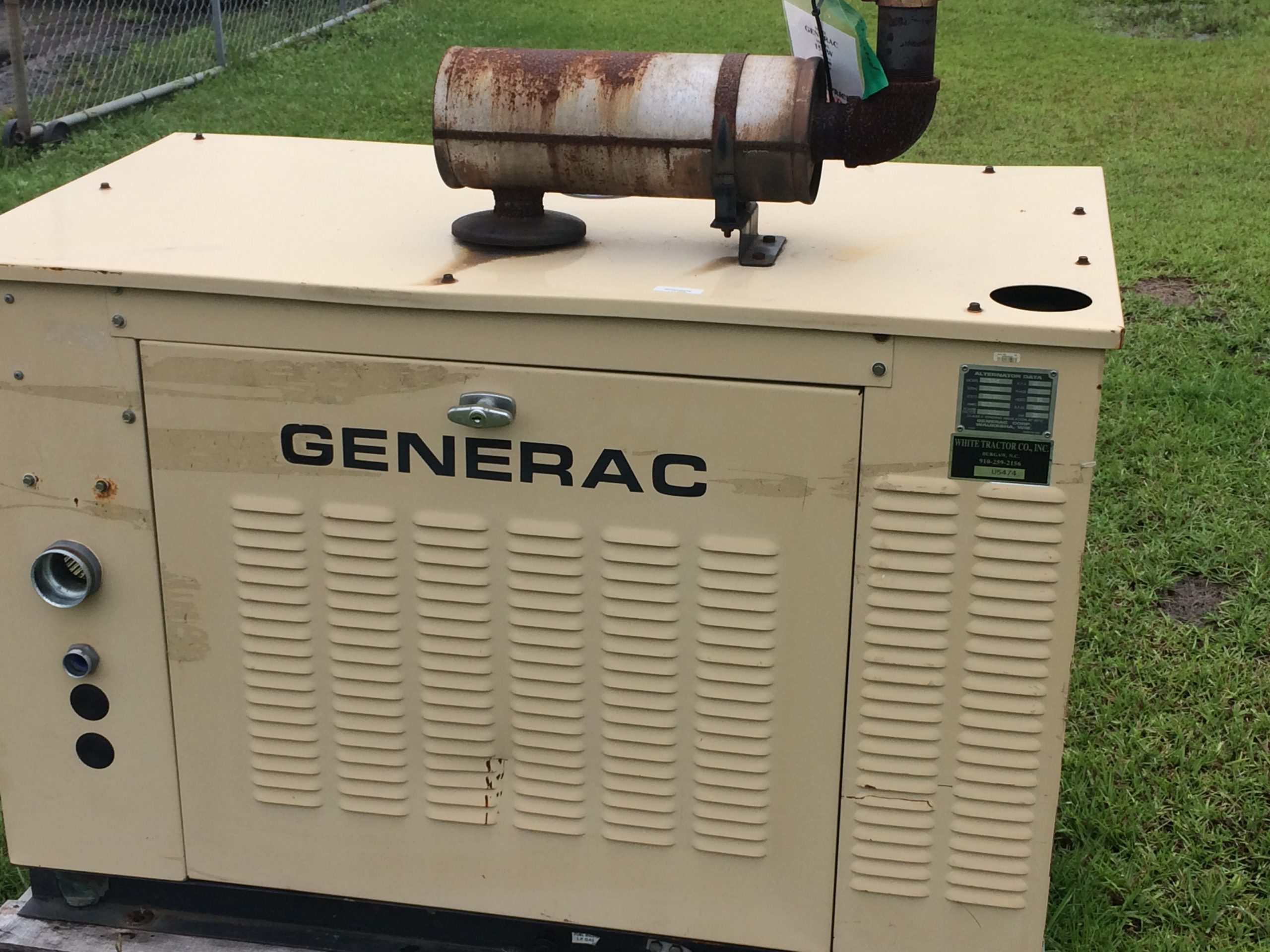Products
Services
Online Store
Other Resources

Keeping your home and business running smoothly is hard without an adequate source of power. A backup generator can help make sure you’re still in operation when the power goes down. As your business grows, your need to have a working generator at all times — after all, time is money.
Making sure you take care of the generator you have installed will keep it running as long as possible. Ideally, you have your unit serviced every year or 200 usage hours.
Still, there will come a time when you may start to question whether the unit is functioning at full capacity. Like any other appliance or device, you may have to eventually replace your generator.
While a properly maintained generator has an optimal life span, as with any other appliance, old age will cause wear and tear, no matter what. Generator replacement is usually required every 20-25 years, but how many hours your generator runs on average with proper maintenance determines your unit’s life expectancy.
When managing your home or business, make sure you service your unit regularly to avoid breakdowns and extend its life.
Generator replacement can be needed anywhere from 15,000 to 50,000 running hours, depending on the model, fuel type and average load. The average life expectancy also varies based on how often you use your unit, if you have a backup generator or how many backup generators are in rotation in a commercial system, and what power load demand you place on your generators.
Here are three tips to keep your home or commercial generator running as long as possible:
Generac generators can last for 20 to 30 years since they’re only used sporadically. Each unit has a specific number of usage hours that you can expect from it — from 2,000 to 30,000 hours can be expected depending on the category and model of generator.
All Generac generators have a counter that makes it easy to track the usage hours. You can ask the technician for this information during each service call.
As the number of hours increases, you may start to notice signs of wear that indicate the need to replace the unit. The technician may also let you know when it’s time to start considering a replacement.
In the case of a power outage, stable electricity is essential. If your appliances are no longer working or are experiencing brownouts during the operation of your generators, this could mean failure.
To boost your generator’s performance and prevent brownouts, keep your generator’s system properly maintained.
There are several signs of wear you might notice when a standby generator is starting to wear out. One of these is having to make too many repairs. As it starts to fail, components won’t last as long. You may even notice that you’re replacing the same part multiple times, even though it should last longer.
Another sign that the generator is wearing out is using more fuel than normal. Generac generators operate with liquid propane, diesel or natural gas. As the generator ages, the components wear out and won’t function as efficiently. This leads to an increase in fuel consumption.
You may also notice that the generator isn’t able to power everything you need. This is a primary concern if it can’t keep up with a load it handled in the past. Contacting a service professional right away is necessary in this case.
There are a few common reasons your unit is starting slowly. One easy fix is to check your generator’s housing and make sure it’s properly insulated, as extremely cold weather can cause machinery to slow down.
Other reasons could be that the choke isn’t properly engaged or the fuel valve is closed or clogged, or it could just be low on oil. If your generator is slow to start, there’s a risk of carbon monoxide buildup in the area, due to the generator expelling small amounts of fuel while trying to start. Make sure the generator housing is well ventilated, and keep a CO2 detector installed nearby.
If your unit becomes sluggish, it’s best to use your standby generator until you can get a certified generator repair specialist to take a look. If your generator always tends to start slowly, it indicates an old or deteriorated unit, and you may just need to replace it with a new generator.
One of the best signs that it’s time to replace your old generator is that despite keeping your generator maintained properly, you’re having trouble starting it or spending too much time and money on frequent repairs.
Preventive maintenance can be a great way to keep your generator working, but if the electrical system you own frequently breaks down, it should be replaced. In addition, as newer technology is released, you’ll likely find multiple benefits of replacing your generator over time.
Standby generators are meant to be used when the main generator is down and so have a longer life expectancy. However, if you find yourself relying on your backup generator more frequently, you’re going to need to replace your standby generator more often.
When frequent repairs are commonplace, make sure your main and backup generators aren’t simply worn out, as it might just be time to buy a new generator.
Replacing the generator you count on for power when your primary power source goes down is a big decision. You have to ensure that you get the best generator you can for the money you’re spending.
When you need to replace or repair your older generator, reach out to the professional generator replacement specialists at Platinum Electrical Contractors. Call Ontario’s leading Generac Generator Installer today at 844-254-9664 and schedule your no-cost consultation to see what Platinum Electrical Contractors can do for you.

The #1 Authorized Generac Home Standby Generator Dealer in Ontario


© 2024 Platinum Electrical Contractors, All Rights Reserved
A member of our team will be in touch shortly to discuss how we can help to meet your needs.